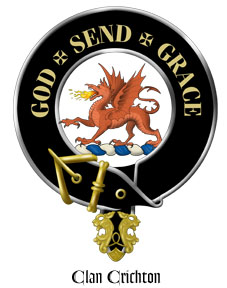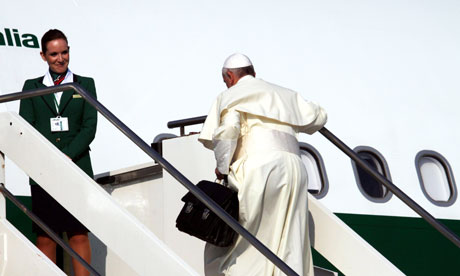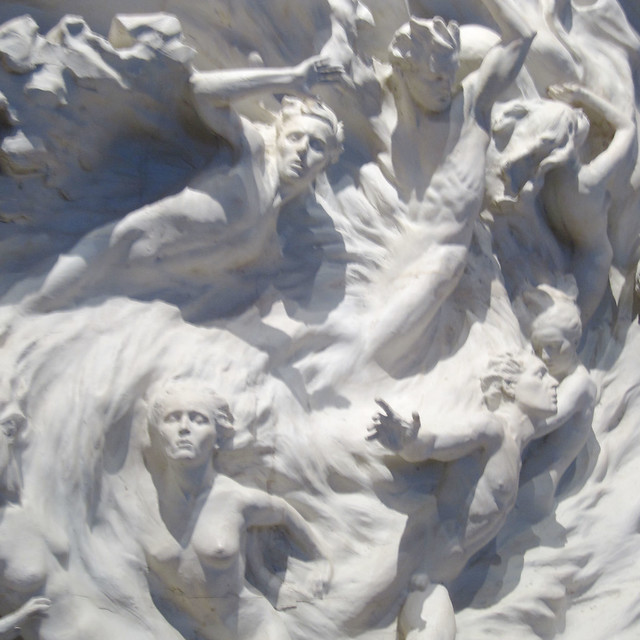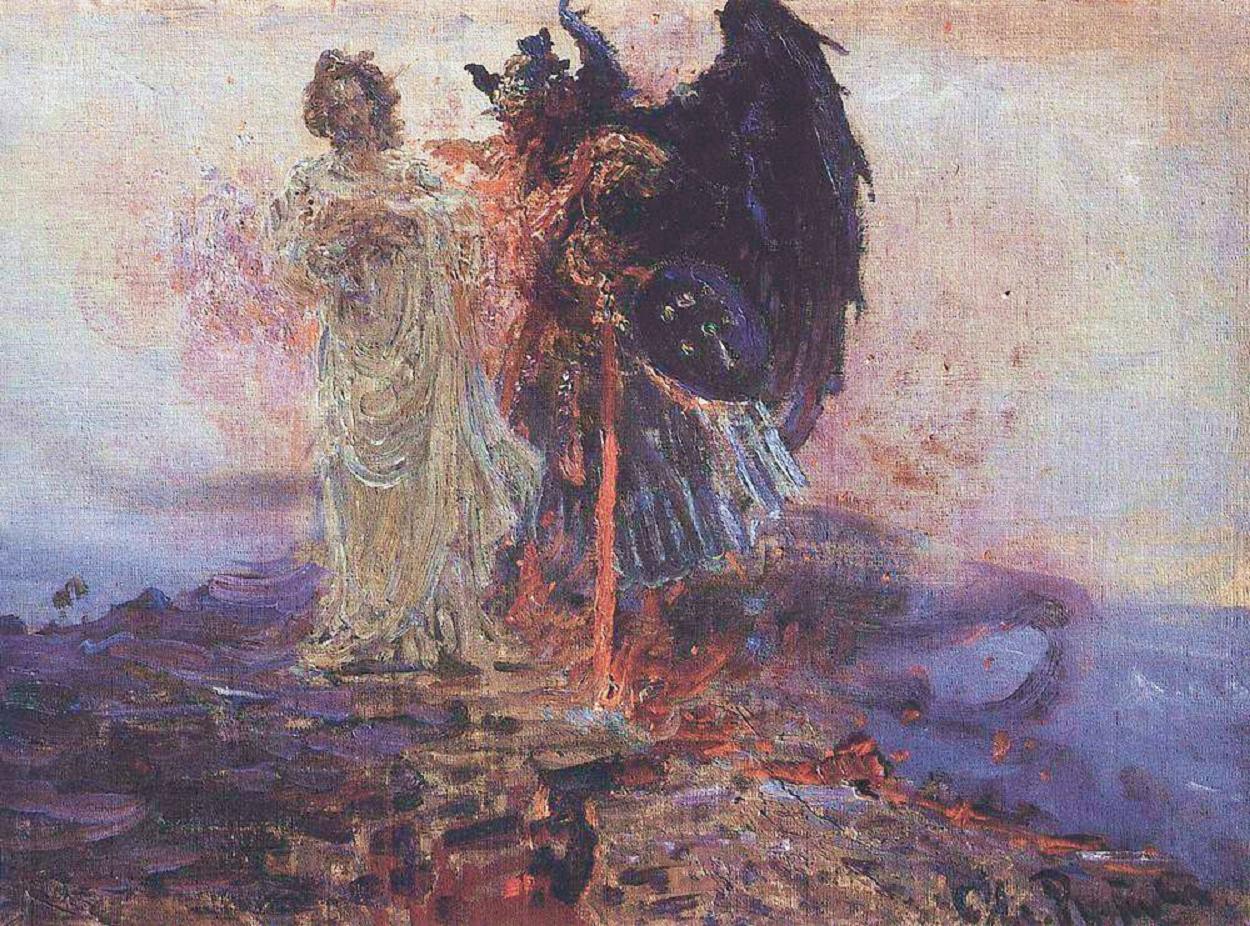May the Grace of Jesus Christ, the Love of God, and the Peace of the
Holy Spirit be with you! I am writing to tell you about what may be the
most important decision of my life since entering the Jesuits. With
God's help, at the behest of my religious superiors and the patient
support and wise encouragement of my CLC group and closest friends, I
have decided to leave ordained Jesuit ministry and return to the lay
state, the priesthood of the faithful bestowed on me by my Baptism
nearly 80 years ago. I do this with confidence and humility, clarity and
wonder, gratitude and hope, joy and sorrow. No bitterness, no
recrimination, no guilt, no regrets.
It has been a wonderful journey, a surprising adventure, an
exploration into the God Who dwells mysteriously in all of our hearts. I
will always be deeply grateful to the Society of Jesus for the
formation, education, companionship, and ministry it has provided, and
to my family for their constant support. I can never thank God enough
for the loving and loyal presence in my life of each and every one of
you.
Why am I doing this? How did I reach this decision? I will try to
tell you now. That is the purpose of this letter.
For about 15 years
now, as many of you have noticed, I have had a "Lover's Quarrel" with
the Catholic Church. I am a cradle Catholic and grew up as Catholic as
anyone can, with Priests and even Bishops in our household, and 17 years
of Catholic education at St. Monica's Grade School, Milwaukee Messmer
High School, and Marquette University.
I took First Vows at Oshkosh in
the Society of Jesus at age 25 and was ordained at Gesu Church to the
priesthood ten years later in 1968. I have served the Church as a Jesuit
priest in Milwaukee, Omaha, and Pine Ridge for 45 years, including 18
years on the Province Staff culminating in my being the Wisconsin
Provincial for six years and attending the 34th General Congregation in
Rome. My last 14 years at Creighton and St. John's have been the best
years of my life. I have truly enjoyed and flourished serving as pastor
of St. John's. I cannot even put into words how graced and loved and
supported I have been by the parishioners, parish staff, campus
ministry, Ignatian Associates, and CLC members! It is you who have
freed, inspired, and encouraged me to the New Life to which I am now
saying a strong and joyful "Yes." You have done this by challenging me
to be my best self as a disciple of Jesus, to proclaim boldly His Gospel
of Love, and to widen the horizons of my heart to embrace the One New
World we are called to serve in partnership with each other and our
Triune God. It is the Risen Christ Who beckons me now toward a more
universal connection with the Cosmos, the infinitely large eco-system we
are all part of, the abundance and vastness of what Jesus called "the
Reign of God."
Why does this "YES" to embrace the call of our cosmic
inter-connectedness mean saying "NO" to ordained ministry? My answer is
simple but true. All mystical traditions, as well as modern science,
teach us that we humans cannot be fully ourselves without being in
communion with all that exists. Lasting justice for Earth and all her
inhabitants is only possible within this sacred communion of being. We
need conversion – conversion from the prevailing consciousness that
views reality in terms of separateness, dualism, and even hierarchy, to a
new awareness of ourselves as inter-dependent partners , sharing in one
Earth-Human community. In plainer words, we need to end the world view
that structures reality into higher and lower, superior and inferior,
dominant and subordinate, which puts God over Humanity, humans over the
rest of the world, men over women, the ordained over the laity.
As Jesus
commanded so succinctly,
"Don't Lord it over anyone … serve one another
in love." As an institution, the Church is not even close to that idea;
its leadership works through domination, control, and punishment. So,
following my call to serve this One World requires me to stop benefiting
from the privilege, security, and prestige ordination has given me. I
am doing this primarily out of the necessity and consequence of my new
call, but, secondarily, as a protest against the social injustices and
sinful exclusions perpetrated by a patriarchal church that refuses to
consider ordination for women and
marriage for same- sex couples.
I have become convinced that the Catholic Church will never give up
its clerical privilege until and unless we priests (and bishops)
willingly step down from our pedestals. Doing this would also put me in
solidarity with my friend, Roy Bourgeois, my fellow Jesuit, Fr. Bill
Brennan, the late Bernard Cooke, and many other men who have been
"de-frocked" by the reigning hierarchy. It will also support the
religious and lay women, former Catholics, and gay and lesbian couples
marginalized by our church. I want to stand with and for them. I am, if
you will, choosing to de-frock myself in order to serve God more
faithfully, truly, and universally.
But why leave the Jesuits? Make no mistake about it: the Society of
Jesus shares in and benefits from this patriarchal and clerical way of
proceeding. We still regard ourselves as the shepherds and those to whom
and with whom we minister as sheep. I discovered this painfully when
the Society of Jesus decided against having Associate members. We are
not prepared for co-membership or even, it seems at times, for
collaboration, though we pay lip service to it. "Father knows best"
remains the hallmark of our way of proceeding. I can no longer, in
conscience, do that. But I still honor and love my fellow Jesuits who
work from that model of power over. It is still where we all are as a
company, a Society, a community of vowed religious in the Roman Catholic
church. Leaving behind that companionship is not easy for me, but it is
the right thing for me to do at this time in my life. When I went
through a formal discernment process with my CLC group, one member whose
brilliance and integrity I have always admired and whose love and
loyalty to the Jesuits is beyond question, said of my decision, "You
cannot NOT do this!" He had recognized God's call in me.
A few other considerations may help clarify my path. The Church is
in transition – actually in exile. In the Biblical tradition, the
Egyptian, Assyrian and Babylonian captivities led to great religious
reforms and the creation of renewed covenants. Think of Moses, Jeremiah,
and Isaiah. I think a similar reform is happening in our Catholic faith
(as well as other traditions).
We have come through far-reaching,
earth-shaking evolutionary changes, and a new (Universal) Church as well
as a new (One) World is emerging. My decision is a baby step in that
Great Emergence, a step God is asking me to take.
Consider this. Being a Lay Catholic has sometimes been caricatured
as "Pray, pay, and obey." Of course, that is a caricature, an
exaggeration, a jibe. But it does point to a real problem. Recently, the
hierarchical church mandated the so-called revision of the Roman Missal
without consulting the People of God. It was both a foolish and a
self-serving effort to increase the authority of Ordained men, damaging
and even in some ways taking away the "Pray" part of "Pray, pay, and
obey." No wonder more and more Catholics are worshipping elsewhere, and
some enlightened priests feel compromised in their roles. I, for one,
feel that this so-called renewal , though licit, is not valid. It is not
pleasing to God, and I feel compromised in trying to do it.
Now, consider this. All of this liturgical, ecclesial, and religious
change is located in and strongly influenced by what both science and
spirituality have revealed as happening to our world, our planet, our
universe.
The very earth we are rooted and grounded in, as well as the
air we breathe and the water we drink, are being damaged and destroyed
even beyond (some say) our capacity to survive. And, as
Fr. John Surette, S.J., has so wisely observed,
"Injustice for the human and
destruction of Earth's ecosystem are not two separate injustices. They
are one." Biocide is even more devastating than genocide, because it
also kills future inhabitants of our precious Earth.
It is time. It is time to abandon our refusal to see that our very
environment is central to the survival and well being of ALL earthlings.
It is time for the Church to turn her attention from saving face to
saving the earth, from saving souls to saving the planet. It is time to
focus on the sacred bond that exists between us and the earth. It is
time to join the Cosmic Christ in the Great Work of mending, repairing,
nurturing, and protecting our evolving creation. It is time for a new
vision of a universal Church whose all-inclusive justice and
unconditional love, an expression of Christ consciousness and the work
of the Holy Spirit, empowers ALL and can lead to a future that preserves
the true right to life of all of God's creatures. This includes future
generations who will bless us for allowing them to live, evolve, and
flourish. Can't you hear them crying out, "I want to live, I want to
grow, I want to be, I want to know?"
In light of all this, how can I not respond to the call both Isaiah
and Jesus heard, the call of our Baptism? "The Spirit of the Lord is
upon me, because the Lord has anointed me and sent me to bring Good News
to the oppressed." All creation will be freed, and all people will know
the freedom and glory of the Children of God. Yes, Lord, I will go.
Please send me.
And that is why I am leaving Jesuit priesthood. Since first vows I
have always thought and hoped and prayed that I would live and die in
this least Society of Jesus. But now, something unexpected! A real
surprise! I HAVE lived and died in the Society of Jesus, but, now,
nearly 80, I have been raised to new life. I am born again – into a much
larger world, a much newer creation. I have greatly benefited from the
spiritual freedom given in and by the Society of Jesus. I feel no longer
chained, limited, bound, by the shackles of a judicial, institutional,
clerical, hierarchical system. As St. Paul once reminded the early
Christians, "It is for freedom that you have been set free." And as St.
Peter, the first Pope, learned when he said to Jesus, "You know that I
love you," love is all about surrender and servanthood.
Thank you for your attention to this self presentation. I am
grateful that you have followed me in the journey described here, and I
am sorry for whatever sadness, disappointment, or hurt this may have
caused you. But what I have written here is my truth, and I can't not do
it! If you want to discuss this with me, ask questions, or give me
feedback, I welcome your response, either by letter, e-mail or phone.
Please pray for me, as I do for all of you, the beloved of my heart and
soul.
Yours in the Risen Christ, Bert Thelen
Link
(here)


















